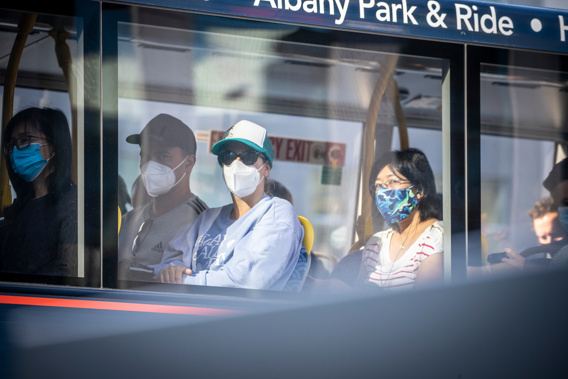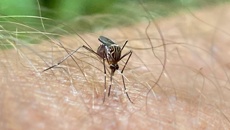
There are 9843 new community cases of Covid-19 in New Zealand today.
The Ministry of Health reported a further eight Covid-related deaths.
There are 421 people in hospital with the virus, including 10 in intensive care.
Today's number of deaths takes the total number of publicly reported deaths with Covid-19 to 986.
Of the deaths reported today three people were from the Southern region; two were from Auckland, two were from Northland, and one was from Canterbury.
One person was aged in their 60s, four people were in their 70s, and three were aged over 90.
Four were women and four were men.
The seven-day rolling average of community case numbers today is 7795. Last Tuesday the average was 7927.
The location of today's new community cases is: Northland (288), Auckland (3,442), Waikato (792), Bay of Plenty (342), Lakes (185), Hawke's Bay (361), MidCentral (339), Whanganui (105), Taranaki (291), Tairāwhiti (90), Wairarapa (87), Capital and Coast (600), Hutt Valley (249), Nelson Marlborough (320), Canterbury (1,305), South Canterbury (177), Southern (781), West Coast (83). The location of six people is unknown.
There are also 63 imported cases reported that were detected in travellers at the border.
Today's update comes as an expert warns that Long Covid cases could persist for decades.
Dr Rob Griffiths, from the University of Otago, Wellington, is calling on government agencies to urgently develop plans to provide ongoing support to those affected.
At least one in five people are expected to experience symptoms more than three months after being infected with Covid-19, he says.
This comes as a major report suggests the virus will become endemic in five years, and would still be driving seasonal surges requiring updated vaccines and boosters.
Yesterday, 7061 new cases were in the community and five Covid-related deaths were reported.
The seven-day rolling average of community case numbers was 7702. Last Monday it was 7479.
There were 415 people in hospital with the virus, including 11 in intensive care.
Yesterday, the Ministry of Health announced that border cases would now be classified as "imported cases".
The change in terminology reflected that although these cases have arrived from overseas, most will be isolating in the community in New Zealand.
Griffiths is the lead convenor of a University of Otago symposium on Post-Acute Covid-19 Syndrome (PACS).
He says while some people with Long Covid could be supported to learn to manage the condition themselves, many will need to work with their community and primary care providers. Others may suffer more serious symptoms, such as cardiac complications, and need high-level specialist care.
"If the acute phase of Covid-19 can be compared to a tsunami of healthcare need, Long Covid will be a subsequent flood of Noah-like proportions," he said.
"The addition of Long Covid to New Zealand's existing chronic disease burden is likely to be significant, and we don't yet know how large the problem will be; there are so many unknowns."
A just released by the International Science Council – a group made up of 200 bodies and led by New Zealand's former chief scientist, Professor Sir Peter Gluckman suggests the echoes of the global pandemic are likely to ring on for years longer because governments have failed to tackle it together.
The virus becoming an endemic disease worldwide by 2027 was found to be the most likely of three possible pandemic scenarios over the next five years - and would still be driving seasonal surges requiring updated vaccines and boosters.
By then less than 70 per cent of the world's population would be vaccinated – and hard measures like regional lockdowns and work-from-home policies would still be a reality in some countries.
Most of the planet's unvaccinated population would still be concentrated in low-income states, where health systems could risk collapse and food security will have worsened.
With recovery efforts spread unevenly between countries – and high-income countries' high vaccine uptake and access to antivirals sparing them from further major waves – the report painted a grim picture of exacerbated inequality across every part of society.
The ministry said this week that the latest case numbers were a reminder to stay vigilant.
Last week, director general of health Dr Ashley Bloomfield warned that only half of the country's Covid infections are likely being reported.
The country had probably reached the low point for cases and hospitalisations from this outbreak, and could be on the way back up, he said.
Take your Radio, Podcasts and Music with you









